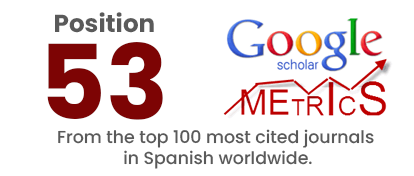University students training and their organization
Keywords:
education, students, students-oriented approach in education, students’ cognitive activitiesAbstract
This paper has been dedicated to Higher Education Student Organization Based upon the work by I.A. Zimnei, T.I. Ilina, V.V. Kraevsky, G.M. Kodjaspirova, ،I.Ya. Lerner, I.F. Kharlamov and other researchers. The authors analyzed the concept of training students of a university and its components. They also clarified the national and international experiences systems in organizing students training in a higher education institute. This paper also provides a complete set of training conditions, contributing students’ higher education organization. It includes the following parts: Modifying student values in the training process of university; developing cognitive activities of students and developing educational process in university given the regulations of a personality-oriented approach.
Downloads
References
Baholskaya, N.A. (2017). The impact of online learning on the development of professional orientation of students of pedagogical specialties of a higher educational institution. Humanitarian-pedagogical studies. - Magnitogorsk: Magnitogorsk Publishing House. state tech. un-that them. 1(1), 45-49. [in Russian].
Sarantsev, G. I. (2016). Harmonisation of Training Bachelor’s Degree Students in Academic Programme “Pedagogical Education”. Integraciâ Obrazovaniâ, 20(2), 211-219.
Bogomolova, Y. V. (2009). METHODOLOGY AND DIDACTICS OF TEACHER TRAINING FOR THE IMPLEMENTATION OF PERSONALITY ORIENTED LEARNING. MORDOVIA UNIVERSITY BULLETIN, 2, 148-152.
Goncharov, S. Z. (2004). Social competence of the individual: the essence, structure, criteria and value. Education and Science, 2(26), 3-18. [in Russian].
Zimnyaya, I. A. (2003). Key Competencies-a new paradigm of education result. Higher education today, 5, 34-42.
Polyakova, O. O., & Lushkina, M. P. (2011). Features of the professional identity of modern students. Moscow State University Bulletin, (2), 69-73.
Ahmadi, A. A., Pour, B. M., & Zamani, M. (2014). Study of relationship between Organizational Culture and Employees Readiness: a Case study of Isfahan University. UCT Journal of Social Sciences and Humanities Research 2(2).
Ardashkin, I., Martyushev, N., & Bezborodov, V. (2015). Problem Methodology of the Organization of the Educational Process. Procedia - Social and Behavioral Sciences, 166, 227-231. [in English].
Arokiasamy, A. R. A., Tat, H. H., & Abdullah, A. (2013). The effects of reward system and motivation on job satisfaction: evidence from the education industry in Malaysia. World Applied Sciences Journal, 24(12), 1597-1604.
Bakholskaya, N. A., Velikanova, S. S., Kozhushkova, N. V., Sunagatullina, I. I., Kashuba, I. V., & Chernykh, O. P. (2018). Personal orientation of educational activities as a basis for the development of professional orientation of students of pedagogical specialties. Revista Publicando, 5(18), 174-181.


















